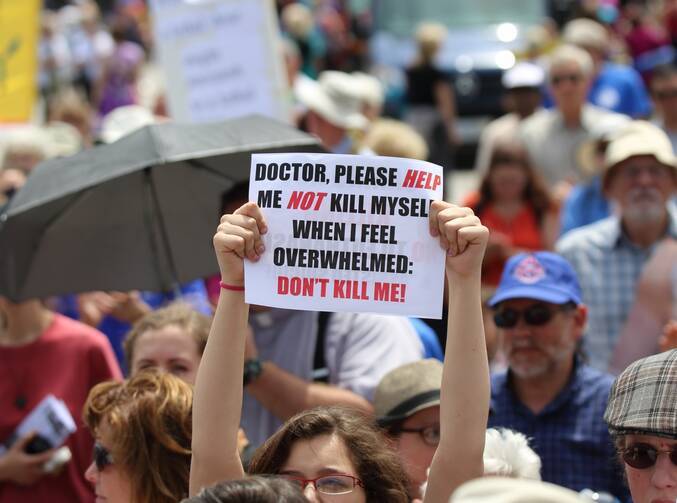
In the past few weeks, iaedp’s “Board” released an announcement advising its members that changes were coming and that the Board was launching a new initiative and strategic plan for the organization.
When I first read this, I equated this “major announcement” with the “major award” won by Old Man Parker in one of the best Christmas movies ever released, “A Christmas Story.” Visions of a fishnet stockinged leg lamp danced in my head.
However, the announcement, when it comes, will end up being quite significant, if not different than what the Board initially intended. Although iaedp has not yet issued its official announcement, the subject has become known in certain circles of the eating disorder community. And that is …
Bonnie Harken, iaedp’s Managing Director is … “retiring.”
It is unknown whether she will also be stepping down as Chairperson of the Boards of Directors of all the “independent” corporate chapters. It is logical to presume that these positions will be included in her retirement.
Most people in the community know that I have significant issues with Ms. Harken and that we are in an adversarial capacity. But that should not diminish the accomplishments Ms. Harken achieved in the past.
According to her LinkedIn profile, Ms. Harken has been in the eating disorders treatment field since 1987. She states she was a founding officer of Remuda Ranch Centers serving as its Vice President until February 2002. Since February 2002 until two days ago, she served as the Managing Director of The International Association of Eating Disorders Professionals Foundation (iaedp). Certainly, twenty-one (21) years far exceeds the reign of any other leader of all other eating disorder organizations. Ms. Harken stated that she served many major eating disorders treatment facilities as a consultant.
In the past, she had a vision for eating disorder board certification. Under her leadership, this certification program was built. For that she should certainly be commended. She was instrumental in helping to bring information about eating disorders to the mental health community.
However.
After issues were brought to the attention of Ms. Harken and before the lawsuit was filed, Ms. Harken and iaedp’s attorneys attempted to deflect attention away from iaedp’s issues and stated their belief that the Morgan Foundation was operating illegally. This is generally known as a “straw man fallacy or argument.”
A straw man fallacy is the fallacious practice of attempting to refute an argument different from the one under discussion, while not recognizing or acknowledging the distinction. Ms. Harken failed to consider that in early 2020, I intentionally let the Foundation lapse.
Through my investigation and research, I found that there were people in the eating disorder community who instead of helping families, were hurting families suffering from this disease. I knew that to expose their conduct and get them out, I had to be aggressive and utilize social media and the court system. I had to become almost hated. I did not want my daughter’s name sullied with that which had to be done.
So, the Morgan Foundation does not, and has not solicited donations, accepted donations or co-sponsored any events since it closed. I regarded Ms. Harken’s attempt to use this to deflect attention away from her own alleged questionable conduct as a sin that cannot be forgiven.
To me, there are very few things/people beneath contempt. But, in attempting to take issue with, and besmirch the memory of my daughter is beyond all decency.
My daughter died after fighting eating disorders for seven (7) years. She possessed more courage, resolve and heart than people like Ms. Harken could possibly envision. However, Ms. Harken crossed the Rubicon of decency. For that, there can be no forgiveness. And that knowledge, that reality, hurts my heart.
Before the current situation, I was on a cordial basis with Ms. Harken. In fact, in one email she wrote:
“I have read Morgan’s journal entries several times. I feel very honored that you shared those pages with me because I imagine the contents of her journal are so very precious to you.
My mother left me a diary that journaled her health issues for over a year before her sudden death. She did not share the issues she was having with me or my brothers. She did not seek medical help which I believe was due to the fact that my father had died four years prior and she didn’t want to go on. Her diary was both a comfort and –sometimes– an agony for me. So many feelings… I am not comparing my experience for any other reason than to share that I know how precious those words on paper are and am so deeply touched that you shared them with me as someone you do not know.
I can’t even begin to fathom what feelings Morgan’s words stir in your father’s heart.
I have no context for her thoughts in terms of when she wrote them or how close it was to her death or the pages that precede or follow those you shared. I do not need to know because the pages I read spoke to me of her journey from a “higher power” to the revelation that our Savior is real and a comforter who loved and cared about her even if she didn’t understand her own circumstances or feelings.
I read the pages repeatedly and thought about my own journey to Jesus and all I have learned since I began my imperfect journey nearly 40 years ago with a Savior who is real and present daily in my life. I asked Him to guide my words to you.
My prayer is that my words comfort you.
I do know this with certainty: When Morgan closed her eyes here on earth, she opened them in the presence and love of Jesus. Heaven is beautiful with colors beyond our imagination. She is with God in perfect peace.
God loves you and I believe He has a call on your life and your journey.”
One statement in that message is particularly poignant. “I can’t even begin to fathom what feelings Morgan’s words stir in your father’s heart.” No, Ms. Harken, you can’t. Consider yourself lucky that you can’t.
I wonder what happened to that person. The person who crafted those words. The person who crafted that message. It is that person I want to remember. That person who at one time strove to help others. That person who made a difference. And yet, I fear that person no longer exists.
That person who could have remained an icon in the community … instead of an outcast.







